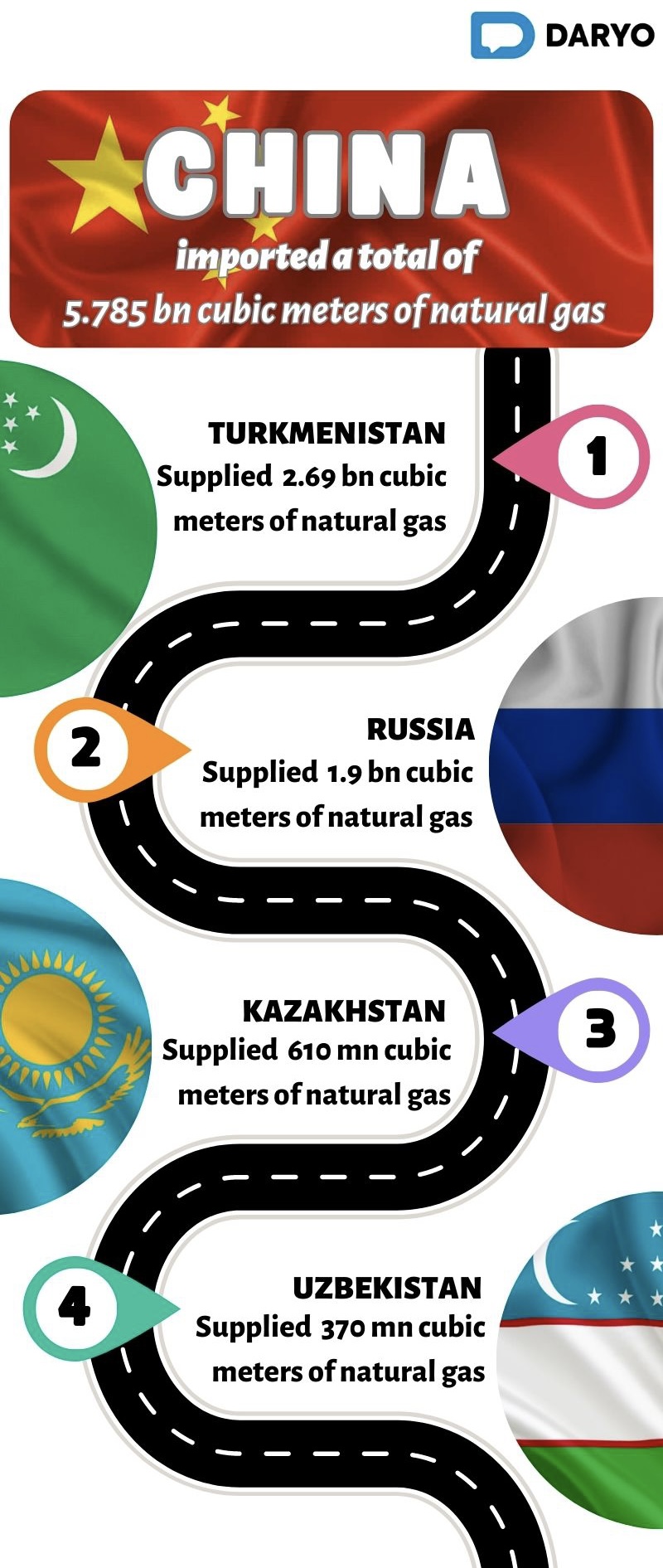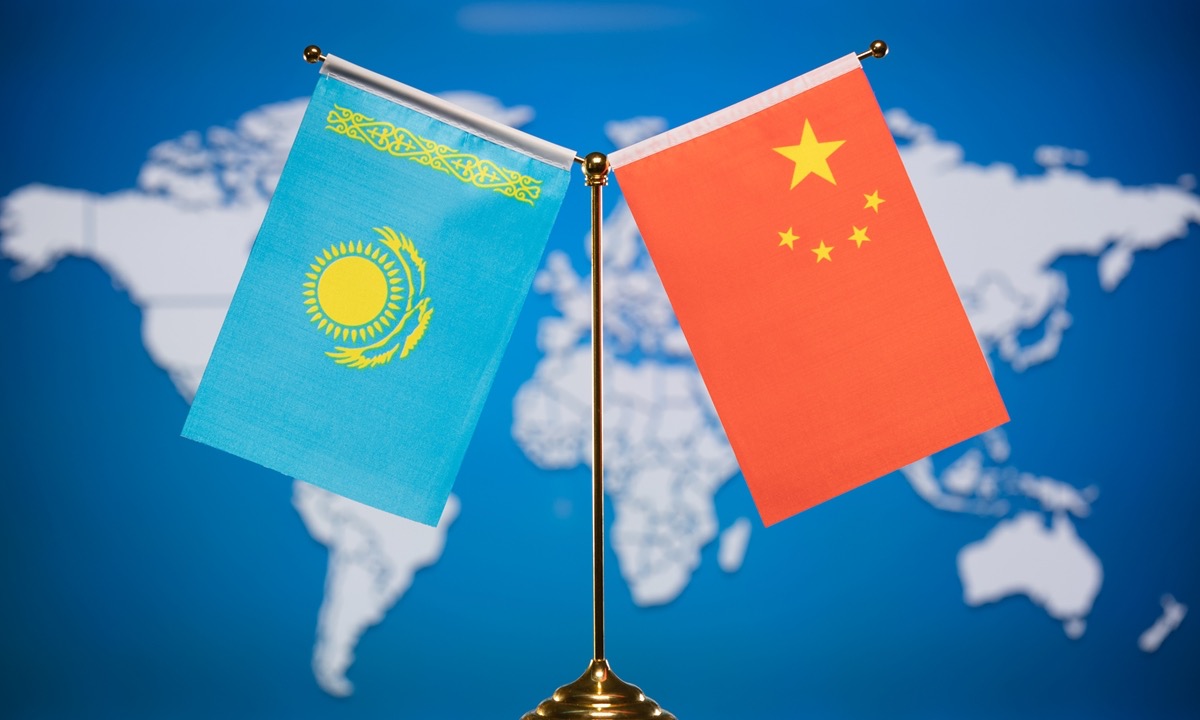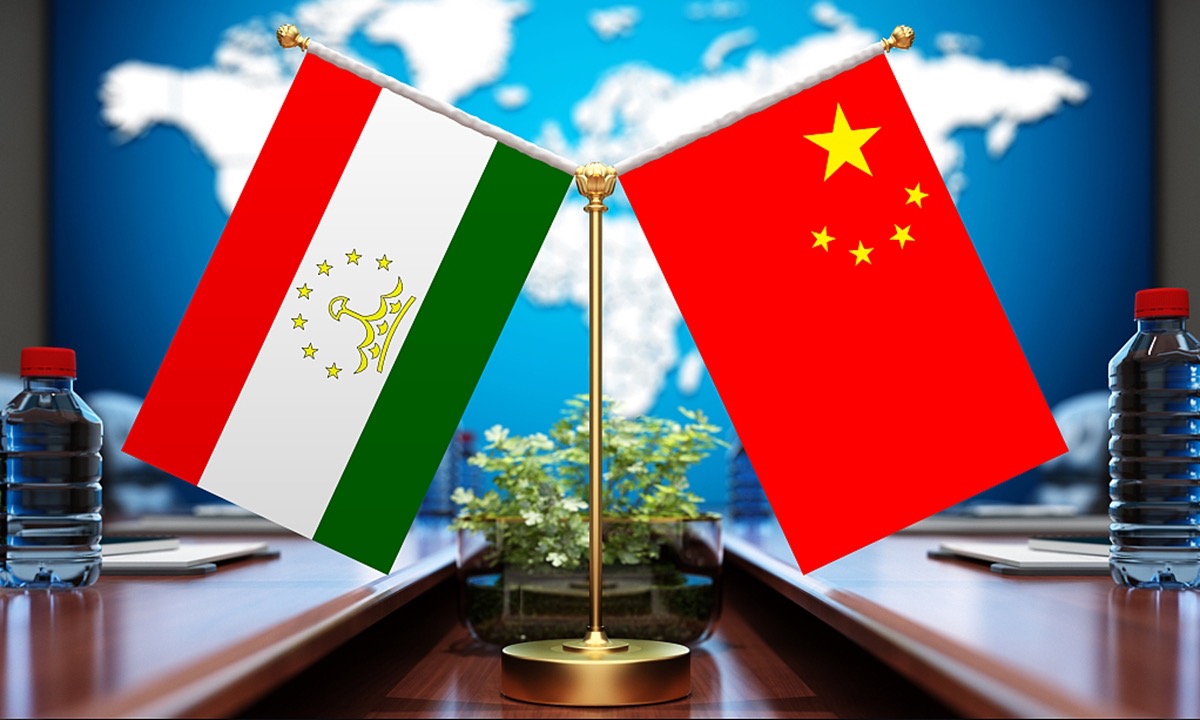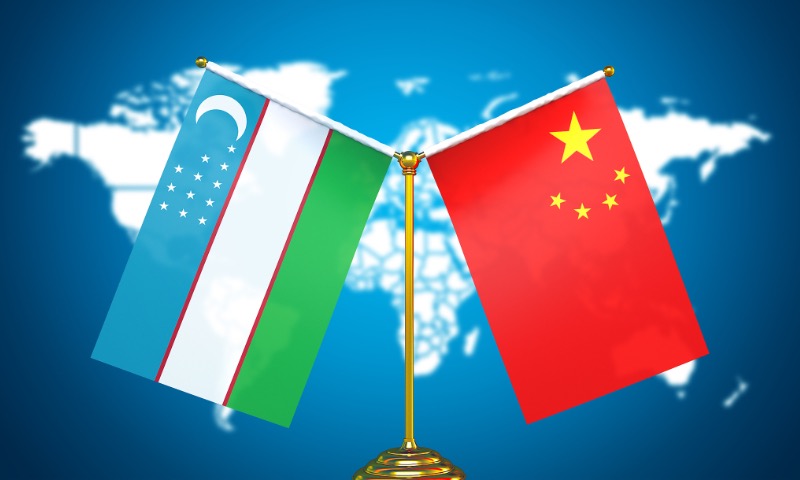China has witnessed a substantial surge in its natural gas imports from Central Asia, primarily through pipelines, as the nation continues to diversify its energy sources. Official customs data indicates that China imported a total of 13.4 bn cubic meters (bcm) of natural gas during the month of June, marking a significant 19% increase compared to the same period in 2022.

The majority of these imports, around 5.785 bcm, were transported via pipelines, showing a slight uptick from the previous month's figures. Among the key pipeline suppliers, Turkmenistan led the way with 2.69 bcm, followed by Russia at 1.9 bcm, Kazakhstan with 610 mn cubic meters, and Uzbekistan contributing 370 mn cubic meters to China's growing natural gas reserves.
Furthermore, China's liquefied natural gas (LNG) imports also played a role in meeting the country's energy demands. This combined effort to strengthen natural gas imports is aligned with China's ongoing strategy to transition to cleaner energy sources while ensuring energy security.

The increase in natural gas imports has opened doors for diplomatic and economic discussions between China and the Central Asian nations involved. As China ramps up its natural gas intake, the region anticipates further collaborations that could benefit various sectors, from infrastructure development to agriculture and education.
Kazakhstan's Efforts to Enhance Exports to China
Kazakhstan is actively working to address obstacles hindering the export of its food products to China. Authorities from both nations are engaged in talks to resolve logistical challenges and improve trade relations. Kazakhstan's Agriculture Ministry is committed to evaluating its veterinary service system, seeking ways to ensure that exports meet the required standards.
Additionally, Kazakhstan aims to boost its exports of rapeseed, peas, and lentils to China, demonstrating the nation's dedication to expanding its agricultural trade portfolio by boosting exports of rapeseed, peas and lentils to China.

In the meantime, wheat shipments from Kazakhstan to China have made a recovery in the past year, although they are still not on par with the amounts seen in 2020-21. Throughout the 10-month "marketing period" of 2022-23, Kazakhstan exported 273,000 tons of wheat. This contrasts with the mere 22,380 tons shipped during the corresponding period of the previous year. However, these latest statistics still fall short of the 301,000 tons that Kazakhstan sent to China in 2020-21. QazTrade, the state company, reports that the average cost of wheat exported from Kazakhstan to China in 2022-23 stood at $270 per ton. This represents a decrease of 13% compared to the figure of $310 per ton observed in 2021-22.
Tajikistan's Diplomatic and Infrastructural Collaborations with China
Rustam Emomali, the son and heir to Tajik President Emomali Rahmon, recently concluded an official visit to China on August 23, emphasizing the importance of inter-parliamentary cooperation. During the trip, agreements were reached to enhance infrastructure, including repairing the Kulma-Karasu border crossing and conducting road repairs in the capital city of Dushanbe. Tajikistan's ambitions extend to improving overland transport options for Chinese-European trade, with a noteworthy $227-mn road improvement initiative in the Gorno-Badakhshan region.

An educational exchange program between Tajikistan and China is set to empower Tajik students in the extractive industries sector. The program entails two years of study at Tajikistan's Mining and Metallurgical Institute, followed by an additional two years at a Chinese university, with Chinese diplomas offered upon completion.
China's Exploration of Uzbek Railways for Expanded Exports
China is actively exploring opportunities to enhance its exports to Europe using Uzbek railways. Delegations from China's Jiangsu Province recently visited Uzbekistan for discussions with freight railway representatives. These discussions also centered on identifying suitable locations for logistics facilities in Tashkent, Samarkand, Ferghana, and Andijan, aiming to strengthen the trade network between China and Europe through the Uzbek route.

China's continued efforts to boost energy imports and foster economic collaborations with Central Asian nations highlight the growing significance of the region in global trade and energy dynamics. As China strengthens its relationships with these countries, various sectors stand to gain from increased cooperation and mutual benefits.
Follow Daryo's official Instagram and Threads pages to keep up to date on world news.
Comments (0)